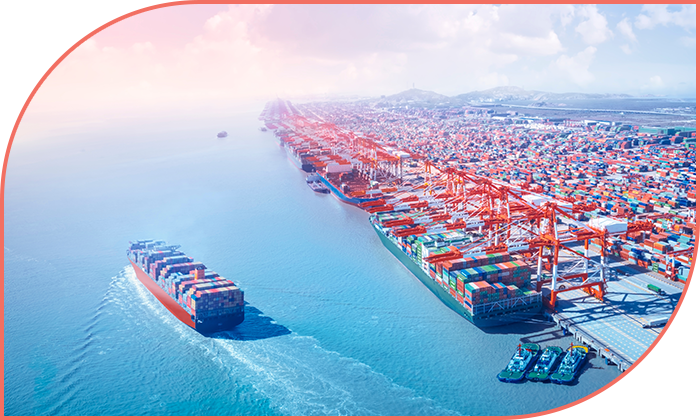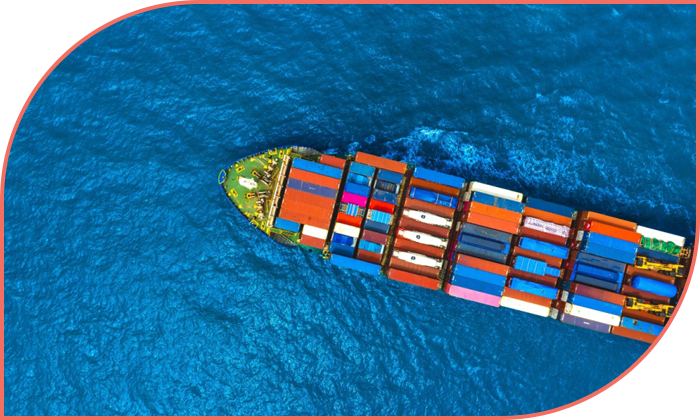Ex Works (EXW)
What is the definition of the Ex Works Incoterm?
Ex Works (EXW) is an international trade term under the Incoterms 2020 rules. The definition of Ex Works describes the minimal obligations of the seller.
They must only make the goods available at their premises (e.g., a factory, warehouse, or other specified location), package and label the goods appropriately and notify the buyer when they are ready for collection.
The buyer assumes all other responsibilities, including the costs associated with transporting goods from the seller's premises to the final destination.
What are the EXW responsibilities for a buyer?
In an Ex Works (EXW) shipping scenario, the buyer assumes significant responsibilities from the point of collection:
As the buyer assumes all risks and costs, understanding the precise meaning of EXW terms is non-negotiable for success.
- Loading charges
- Transportation from the port of origin
- Export documentation and customs clearance
- Freight costs
- Insurance
- Terminal charges
- Import customs clearance and duties
- Final delivery
- Unloading
As the buyer assumes all risks and costs, understanding the precise meaning of EXW terms is non-negotiable for success.
What are the EXW responsibilities for a seller?
Compared to other shipping terms like FOB (Free on Board) and CPT (Carriage Paid To), the seller has minimal duties under the Ex Works Incoterm. However, they are responsible for:
- Making goods available for pickup at a specified location
- Packaging and labelling the goods according to the terms of the sale contract
- Providing the necessary documentation (e.g., commercial invoice)
- Notifying the seller when the goods are ready for collection
Shipping Made Simple: Compare Quotes Now
Quickly compare ocean and air freight quotes from multiple carriers. Get the most competitive price for your shipment.
When is an Ex Works agreement used?
The Ex Works Incoterm is employed in a range of international trade arrangements, such as:
Buyer prefers to handle logistics:
EXW terms provide more flexibility over the shipping process, particularly if the buyer has established relationships with freight forwarders and prefers to manage the logistics themselves.
Combining multiple shipments:
EXW shipping is advantageous when the buyer wants to consolidate multiple shipments from the same or different suppliers into a single export.
When the buyer and seller live in the same country:
EXW arrangements are arranged when the complexities associated with international shipping are reduced by the buyer’s proximity to the port of origin.
Specialised handling requirements:
If the goods require specialised transport, and the buyer has the necessary expertise, the Ex Works Incoterm ensures they can manage the logistics.
Supplier lacks export resources:
When purchasing from a supplier who does not have the capability or resources to manage export logistics, EXW means the buyer can take over.

What are the benefits of Ex Works terms?

Control over shipping
As the buyer is responsible for arranging transport, it allows them to select the carriers, routes, and schedules that best suit their needs.
Transparent cost structure
The seller's price under EXW shipping includes only the cost of goods. The buyer manages all additional costs, such as transport, insurance, and customs clearance.
Flexibility
With EXW terms, managing and coordinating large orders can be made easier for the buyer, as they can consolidate shipments from multiple suppliers.
Get The Best Freight Rates Today
Easily compare rates from top ocean and air freight carriers. Save time and money on your next shipment.
What are the drawbacks of Ex Works terms?
Risk for the buyer
Handling the responsibilities of transport, loading, unloading and customs clearance can be a significant burden, especially for buyers unfamiliar with the export processes of the seller's country.
Potential higher costs
While EXW shipping terms can provide cost transparency, they can also lead to higher overall costs for the buyer.

EXW Frequently Asked Questions
Do EXW Incoterms include duties and taxes?
Under Ex Works, the responsibility for arranging and paying for transportation falls entirely on the buyer. Once the seller makes the goods available at their premises, the buyer must handle all aspects of transportation.
Who is responsible for arranging and paying for transportation under Ex Works terms?
In cost and freight terms, the seller pays for the freight charges to transport the goods to the named port of destination.
What is the difference between EXW and FOB?
The key differences between EXW and FOB (Free on Board) include:
EXW:The buyer handles all transportation and associated costs from the seller's premises.
FOB: The seller manages transportation and costs up to the port of shipment, including loading onto the vessel.
EXW: Risk transfers to the buyer as soon as the goods are made available at the seller's premises.
FOB: Risk transfers to the buyer once the goods are loaded onto the vessel.
EXW: The buyer has full control over the shipping process.
FOB: The seller controls the initial stages of shipping, with the buyer taking over once the goods are on board
Responsibilities for costs
EXW:The buyer handles all transportation and associated costs from the seller's premises.
FOB: The seller manages transportation and costs up to the port of shipment, including loading onto the vessel.
Risk transfer
EXW: Risk transfers to the buyer as soon as the goods are made available at the seller's premises.
FOB: Risk transfers to the buyer once the goods are loaded onto the vessel.
Control over Shipping:
EXW: The buyer has full control over the shipping process.
FOB: The seller controls the initial stages of shipping, with the buyer taking over once the goods are on board
Compare Freight Shipping Rates in Seconds
Get instant quotes from leading ocean and air freight providers. Find the best rates for your shipping needs in one place.